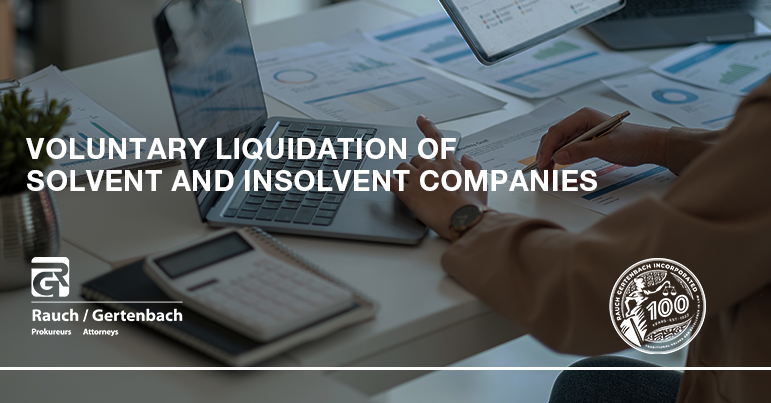A voluntary wind-up may refer to either the voluntary liquidation of a solvent company or the voluntary liquidation of an insolvent company.
Members’ voluntary winding-up (Solvent company)
In terms of section 80 of the Companies Act of 2008 a solvent company may be wound up voluntarily if the company has adopted a special resolution to do so. Take note that such a resolution shall be of no force if it has not been registered with the Companies and Intellectual Properties Commission (“CIPC”). Alternatively, a solvent company can be wound-up by order of Court, in terms of section 81 of the Companies Act.
There can be various reasons why a company that is solvent, resolves or apply to court to be liquidated voluntarily. Some of the reasons can include that the purpose for which the company has been incorporated has been fulfilled or that the directors responsible for the management of the company, are no longer on friendly terms.
For whatever the reason, to liquidate the company will dissolve the entity completely and could prevent any possible future liabilities against the company or directors.
Creditors’ voluntary winding-up (Insolvent company)
An insolvent company may be voluntarily liquidated if the company has by special resolution resolved that it be so wound up, in terms of section 349 of the Companies Act of 1973. Take note that such a resolution shall be of no force if it has not been registered with the Companies and Intellectual Properties Commission (“CIPC”).
There can be various reasons why a company that is insolvent resolves to be liquidated voluntarily, some of the reasons can include, that the company is technically insolvent (i.e., the companies liabilities is greater than its assets at a point in time) or that the company is commercially insolvent (i.e., the company is unable to pay its debts as they fall due for the next twelve months) or that the directors act in accordance with the law to ensure that they do not carry on trading recklessly under insolvent circumstances.
As mentioned above in the case of a Members’ voluntary winding-up, a Creditors’ voluntary winding-up also dissolve the entity completely, bring an end to all parties involved and could prevent directors from being held personally liable.
Directors’ personal liability
Section 22 read with section 77 of the Companies Act 2008 deals with the liability of directors and provides that if it at any time appears that any business was carried on recklessly, with gross negligence or with intent to defraud any person, a Court may on the application of the Master or any creditor or shareholder, declare that any person who has knowingly been a party to the carrying on of that business in any such manner, shall be personally liable for any losses or damages incurred.
Therefore, it is of utmost importance that directors ensure that they always know what the financial position and cash flow situation of their company is at any point in time to ensure that they do not conduct business recklessly or with gross negligence.
Take note that although this article only refers to a company, the same principles apply to a closed corporation.
For more information on this topic, please contact Enrico Acker at 044 601 9900 / enrico@rgprok.com .







